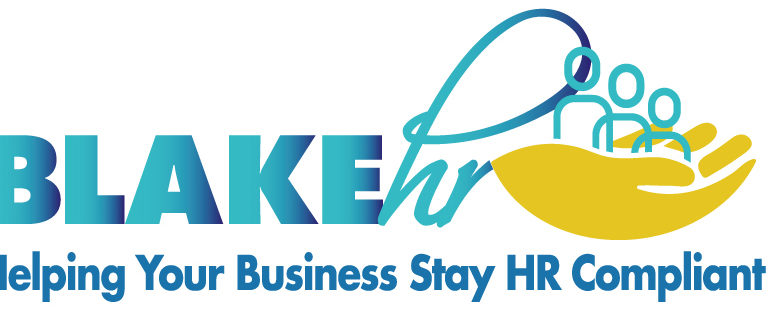So, you’re wondering why it is that your employees seem to be barely present and doing the minimum to get the job done. They stroll into work, or log on at home bang on time, or a few minutes late, then watch the clock waiting for lunch or home time. Why is this? What’s going on? What can you do – is there anything you can do?
If only you could tap into their thoughts about work, what they like and don’t like, what they would change if they could; find out what they really thought of the company – and YOU, the owner. What about an employee survey? This is a method used to gather opinions that can be used by management to build a positive environment.
In this post I will share 5 reasons why you need to carry out an employee survey.
- Become aware of burning problems before they get out of hand
- You can learn from communicating with your people
- Increased employee engagement
- You’ll retain your top talent for longer
- Your business will run smoother with less interruptions caused by people issues
What is an employee survey?
An employee survey is a means of measuring your organisation’s level of engagement. It is a confidential survey of your employees designed to gather their feedback and assess their engagement levels.
For example, your employees are hard-working, and work well together in their teams. The business has plenty of orders and things are running smoothly. However, you know things could be even better, but you just can’t put your finger on what’s missing. Here’s where an employee survey would be useful to find out what the workers think. Who better to gather valuable insights from than the people within the organisation?
Why are employee surveys important?
It’s important for organisations to know how their employees are feeling, and to gauge any likelihood of people leaving, potentially taking their valuable skills with them. There could be many reasons for employee dissatisfaction, ranging from the tea and coffee constantly running out to feelings that managers and senior management aren’t sufficiently visible or approachable. Other reasons could include employees feeling they have limited scope for development and progression.
I once worked with an organisation where employees were unhappy, always complaining to each other and there seemed to be an ‘us and them’ atmosphere throughout the business regarding the relationship between employee and employer.
After carrying out an employee survey and analysing the results, it was found that employees believed senior management wasn’t sufficiently visible; they felt that decisions and changes that affected them were made without their input, which contributed to their feeling of being undervalued. The business was on a slippery slope to losing some of its most talented people.
Employees elected their own representatives to be the link between senior managers and themselves. Following senior leadership meetings, representatives were briefed on matters discussed and these were communicated back to their peers. This had the effect of repairing relationships between the two parties, giving employees the opportunity to voice their opinions and make some worthwhile contributions.
5 Reasons to Have a Survey
1. Become aware of burning problems
When you know what could be causing anxiety among your people, you are in a good position to address the issues early. It can be difficult for some people to speak up and so they choose to stay quiet; they may think they are making something out of nothing and may not want to make a fuss. An anonymous employee survey gives them the opportunity to speak.
Think how much happier your employees would be if they knew the faulty hand dryers in the toilets were fixed!
2. You can learn from engaging with your people
Your employees are best placed to tell you what’s missing, how things could work better or come up with new ideas that would benefit the business. By listening to them and giving them a voice, they feel part of the business, which automatically motivates them to perform at their best.
When your employees are motivated and feeling involved in the business, they are more likely to turn up every day and this means productivity is improved. More production means more sales, which increases revenue.
Regular attendance when employees are more engaged, leads to fewer absences and leavers, which means less money spent on sick pay and recruiting. Now that’s a good saving.
3. Increased employee engagement

When employees feel listened to, they engage more with the business, perform better and are happier in their work. This lifts the mood of the whole organisation and makes it a much happier place to be. There is reduced risk of poor performance and conduct issues.
With fewer performance and conduct issues to manage, your line managers will be able to concentrate more on their teams and business objectives, which means operations run smoother and more efficiently.
With less human hours spent on non-productive work, the business gets the best value from management resources. That’s another good saving!
4. You’ll retain your top talent for longer
Everyone wants to enjoy their time at work. Employees that are regularly surveyed, with effective follow-up, are more likely to stay with their employer. This means you recruit less often, there are fewer skills gaps in your workforce and production is more seamless, as there’s less time spent on settling in new people.
A recent survey of over 6,000 UK workers carried out by the Chartered Institute of Personnel & Development (CIPD) has shown that 20% say it’s likely they will leave their current role in the next 12 months. Reasons include wanting to increase job satisfaction, the desire for better work-life balance, better pay and benefits and wanting to do a different type of work.
An employee survey will give insights into the level of employee satisfaction, highlighting any concerns and providing the business with an opportunity to dig deeper and address the concerns identified. This could mean the difference between losing your top talent and retaining it. What’s not to like about that?
5. Your business will run smoother with less interruptions
If your people are happier at work, they’re less likely to be absent or perform poorly. This means there’s less likelihood of having to carry out performance management and poor conduct procedures – so employees and managers spend more time being productive.
When there are performance and conduct issues to deal with, especially in a small team, this can have a draining effect on the rest of the team or organisation. The mood dips and productivity suffers. No one likes an environment where people feel dejected. It makes sense to minimise this possibility as much as possible.
Regularly surveying your employees, and following through with solutions, will put you in the best position to keep on top of any people issues that may be simmering under the surface. Win, win.
The bottom line is…
Employee surveys are an important part of getting to know your people and engaging them with your business. Your people are your greatest and most costly asset, so look after them and they’ll look after your business. By surveying your employees regularly, you can address any issues as soon as possible, learn valuable insights from your people, increase their engagement with the business and retain top talent. You’ll also run more smoothly as an organisation with fewer people issues to deal with.
Want to know more? I’ll post more on this soon, so look out for regular updates. You can also complete my contact us form or book a call now to find out how BlakeHR can help you to carry out an Employee Survey. If you would like to find out more about the types of service I offer please visit my “Our Services” page.



